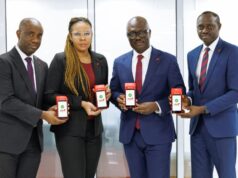THUR, AUG 27 2020-theG&BJournal– The government’s anticipation of the impending economic slowdown and the various initiatives introduced as early responses to cushion the economic and social effects of the pandemic, through the Economic Sustainability Programme (ESP), contributed immensely to dampening the severity of the pandemic on gross domestic growth, the Federal Government has said.
Nigeria’s Q2 2020 GDP declined by -6.10% (year-on-year) in real terms in the second quarter of 2020, ending the 3-year trend of low but consistently improving positive real growth rates recorded since the 2016/17 recession. The overall decline of -6.1% (for Q2 2020) and -2.18 per cent (for H1 2020) was better than the projected forecast of -7.24% as estimated by the National Bureau of Statistics (NBS).
The government’s analysis concludes that the figure was relatively far better than many other countries recorded during the same quarter.
‘’It outperformed projections by most domestic and international analysts. It also appears muted compared to the outcomes in several other countries, including large economies such as the US (-33%), UK (-20%), France (-14%), Germany (-10%), Italy (-12.4%), Canada (-12.0%), Israel (-29%), Japan (-8%), South Africa (projection -20% to -50%), with the notable exception of only China (+3%),’’ said the FG in their response to the Q2, 2020 NBS Figures.
While government anticipates that the third and fourth quarters will reflect continued effects of the slowdown, it is also confident that the Fiscal and Monetary Policy initiatives being deployed in a phased process will be a robust response to the challenges posed by the COVID-19 pandemic.
The Presidency in the response published by Femi Adesina, Special Adviser to the President Muhammadu Buhari, Media and Publicity also outlined policies the government has implemented to help it ride the storm of the COVID-19 pandemic and cushion the impact on the economy.
It said, on the fiscal side, robust financing mechanism was designed to raise revenue to support humanitarian assistance, in addition to special intervention funds for the health sector.
‘’Adjustments to the national budget as well as emergency financing from concessional lending windows of development finance institutions were critical in supporting governments’ capacity to meet its obligations.’’
On the monetary side, moratorium on loans, credit support to households and industries, regulatory forbearance and targeted lending and guarantee programs through NIRSAL were some of the measures implemented in response to the pandemic during the second quarter.
‘’It is equally worth noting that since the start of the third quarter, the phased approach to easing the restrictions being implemented centrally and across States have resulted in a gradual return of economic activity, including the possibility of international travel.
More importantly, the anticipated health impacts of the pandemic have been managed without overwhelming the health infrastructure, which would have further compromised the ability to re-open the country to travel, commerce and international trade. Indeed, this has provided greater confidence and ability for authorities to initiate the conduct of nationwide terminal examinations and resumption of the next academic year.
Furthermore, as the country begins the gradual loosening up of restrictions, and levels of commercial activity increase by people returning to their various livelihoods and payrolls expand, it still remains imperative that all the necessary public health safeguards are adhered to so the country avoids an emergence of a second wave.’’
|twitter:@theGBJournal|email: info@govandbusinessjournal.com.ng|









